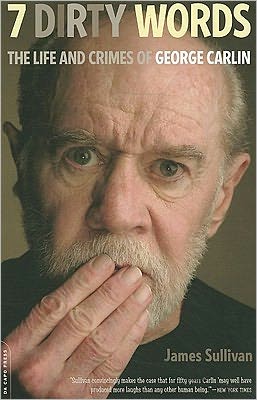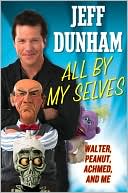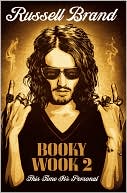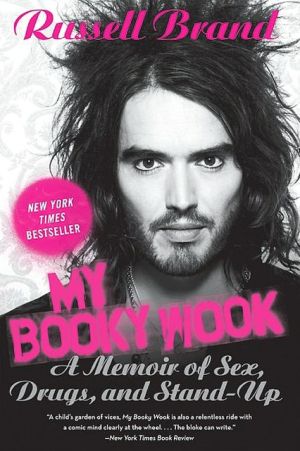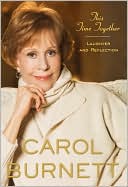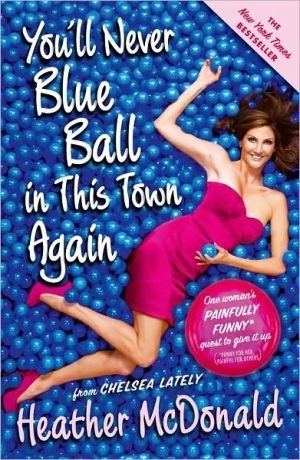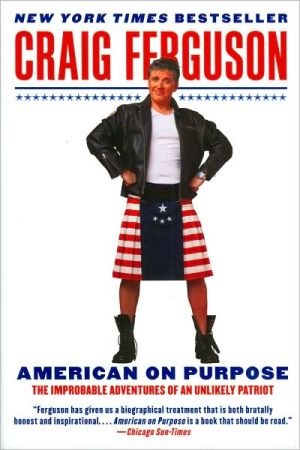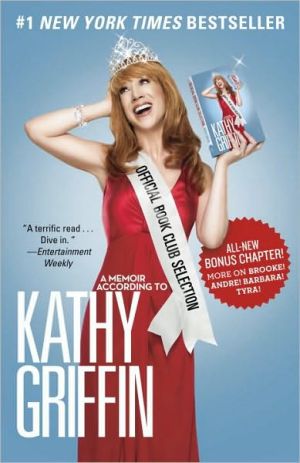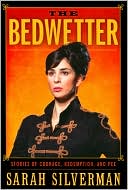Seven Dirty Words: The Life and Crimes of George Carlin
In Seven Dirty Words, journalist and cultural critic James Sullivan tells the story of Alternative America from the 1950s to the present, from the singular vantage point of George Carlin, the Catholic boy for whom nothing was sacred. A critical biography, Seven Dirty Words is an insightful (and, of course, hilarious) examination of Carlin's body of work as it pertained to its cultural times and the man who created it, from his early days as a more-or-less conventional comedian to his stunning...
Search in google:
On the heels of George Carlin’s bestselling memoir, Last Words, the definitive chronicle of the life and art of the legendary comic, provocateur, and social critic Publishers Weekly A recipient of the Kennedy Center Mark Twain Prize for American Humor, stand-up comedian Carlin (1937-2008) wrote three bestselling humor books and looked back over his five-decade career in his recent memoir, Last Words. Now music journalist and culture critic Sullivan, a contributor to Rolling Stone and the San Francisco Chronicle, offers an overview, starting with the young Carlin in 1950s New York. The Air Force sent him off to Louisiana, where he began as a Shreveport radio personality. As a DJ in Fort Worth, Tex., he polished a comedy act with Jack Burns, and the two left for the West Coast, performing together for two years before they split in 1962. Going solo, Carlin's taboo topics and “subversive attitude” took center stage. In this linear summary of Carlin's career, Sullivan dissects the comedian's classic iconoclastic routines, probes his working methods and successfully captures his rocketlike ascent to fame from night clubs and the 1960s comedic cauldron of Greenwich Village to television acclaim, controversy, and creative conflicts. However, those who want to experience a full explosion of the cynical and caustic Carlin blasting off minus the heat shields should instead seek out the finely tuned and wit-saturated Last Words. (June)
Warm-up 11 Heavy Mysteries 72 Class Clown 253 Attracting Attention 514 Values (How Much is That Dog Crap in the Window?) 755 The Confessional 976 Special Dispensation 1217 Seven Words you Can Never Say on Television 1438 Wasted Time 1679 America the Beautiful 18910 Squeamish 205Kicker 231Notes 235Acknowledgments 247Index 249
\ Library JournalSullivan, who's written for the Boston Globe, San Francisco Chronicle, and Rolling Stone, chronicles the life of influential stand-up comedian and social commentator George Carlin in this well-written and thorough biography. He describes how historical events changed Carlin, influenced his comedy, and led to such famous Carlin routines as the "7 Dirty Words." Sullivan analyzes how Carlin liked to break the boundaries of free speech with his observations on everyday experiences and big unanswerable questions about, e.g., religion, and he illustrates Carlin's love of the English language with its strange rules and quirks. VERDICT A celebration of the life of George Carlin and how his comedy remade stand-up, this is a great companion to Carlin's recently published autobiography, Last Words. Highly recommended for readers interested in performing arts, George Carlin, comedy, and celebrity biographies.—Sally Bryant, Pepperdine Univ. Lib., Malibu, CA\ \ \ \ \ Kirkus ReviewsStraightforward biography of George Carlin (1937-2008), who survived countercultural excess to become a seminal American stand-up comedian. Boston Globe contributor Sullivan (The Hardest Working Man: How James Brown Saved the Soul of America, 2008, etc.) portrays Carlin as a singular cultural figure, connecting the 1950s' "Silent Generation" to '60s hippies, '70s stoners and '90s slackers, through a unique combination of shrewdness and provocation. "George Carlin was a natural born transgressor," he writes. The author meticulously chronicles Carlin's career, which intersected with many formative cultural trends of the '50s and '60s. He began as a regional radio DJ, moved into mainstream comedy while observing the "sick" club scene epitomized by Mort Sahl and Lenny Bruce, toured extensively and became an early favorite on television, particularly late-night shows. Sullivan ably captures a sense of the entertainment industry at the time-glamorously competitive and fiercely insular. After years honing his comic chops and caricatures like the "Hippie-Dippy Weatherman," Carlin aligned himself with the "freaks" at the right moment, becoming a hugely popular campus comedian and releasing Grammy-winning LPs. This culminated in his notorious 1972 Milwaukee arrest that eventually landed him before the Supreme Court on charges of obscenity. Sullivan argues that the incident has informed our (often incoherent) national conversation about free speech and obscenity ever since. The author also dutifully covers Carlin's personal life. Not surprisingly, he used drugs for a time, but by his own account weaned himself off them by the '90s. Alcohol, however, proved a harder addiction. Less well-known is hisfrequent personal generosity toward other comedians and his steady romance with Brenda, his wife of 36 years, who died after a brutal bout with liver cancer. Sullivan isn't able to fully penetrate Carlin's inner life, resulting in a fairly standard showbiz praise narrative. Still, this is an apt, detailed memorial to a groundbreaking performer.\ \ \ Publishers WeeklyA recipient of the Kennedy Center Mark Twain Prize for American Humor, stand-up comedian Carlin (1937-2008) wrote three bestselling humor books and looked back over his five-decade career in his recent memoir, Last Words. Now music journalist and culture critic Sullivan, a contributor to Rolling Stone and the San Francisco Chronicle, offers an overview, starting with the young Carlin in 1950s New York. The Air Force sent him off to Louisiana, where he began as a Shreveport radio personality. As a DJ in Fort Worth, Tex., he polished a comedy act with Jack Burns, and the two left for the West Coast, performing together for two years before they split in 1962. Going solo, Carlin's taboo topics and “subversive attitude” took center stage. In this linear summary of Carlin's career, Sullivan dissects the comedian's classic iconoclastic routines, probes his working methods and successfully captures his rocketlike ascent to fame from night clubs and the 1960s comedic cauldron of Greenwich Village to television acclaim, controversy, and creative conflicts. However, those who want to experience a full explosion of the cynical and caustic Carlin blasting off minus the heat shields should instead seek out the finely tuned and wit-saturated Last Words. (June)\ \ \ \ \ From the Publisher"Sullivan convincingly makes the case that for 50 years Carlin 'may well have produced more laughs than any other human being.'" —-Dwight Garner, The New York Times\ \
